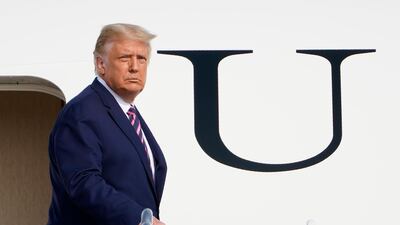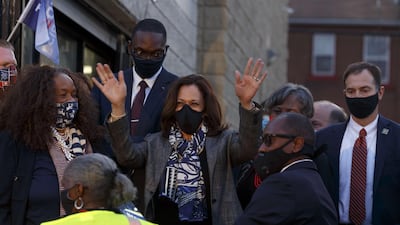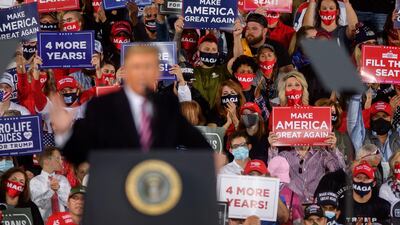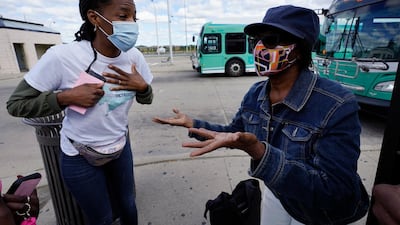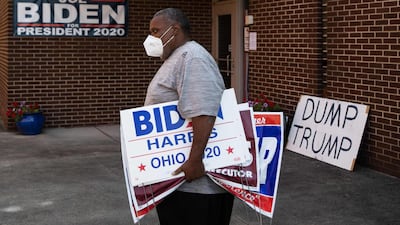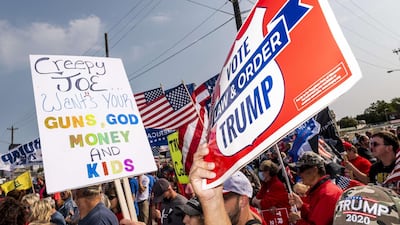Donald Trump's digital campaign team tried to dissuade millions of black Americans from voting in the 2016 US presidential election, Britain's Channel 4 News claimed in a report on Monday.
The channel said it obtained a file used by Mr Trump's team four years ago that contains almost 200 million US voters who were put into categories to send them targeted ads on social media.
Among those, more than 3.5 million black Americans were allegedly put into a category marked "deterrence", which aimed to push them to abstain from voting.
Channel 4 journalists said African Americans, who are mainly loyal to the Democratic Party, were the targets of this strategy more than other communities.
In the state of Georgia, for instance, black people made up 61 per cent of members of the "dissuasion" category when they only represented 32 per cent of the population, the investigation said.
"It was a strategy that preceded a collapse in the black vote in key states like Wisconsin," the report said.
Mr Trump's 2016 digital campaign included a team from British firm Cambridge Analytica, accused of having collected and used personal data of Facebook users without their consent for political purposes.
Brad Parscale, the campaign's 2016 digital director, insisted that his team did not target black voters.
"I would say I'm nearly 100 per cent sure we did not run any campaigns that targeted even African Americans," he told PBS Frontline.
But Channel 4 News investigators said they saw a confidential document in which Cambridge Analytica recognised having targeted black Americans.
The report said that negative publicity was used to discourage people from voting for Hillary Clinton, Mr Trump's rival in the 2016 election, where the Democrat candidate described young blacks as "superpredators" in videos viewed by millions on Facebook.
"The thing that's shocking, slash troubling, about this is that there's this category of suppression," said Jamal Watkins, vice president of the National Association for the Advancement of Coloured People.
"We use data, similar to voter-file data, but it's to motivate, persuade and encourage folks to participate.
"We don't use the data to say who can we deter and keep at home. It's a shift from the notion of democracy."
_________
Gallery: The 2020 campaign trail
